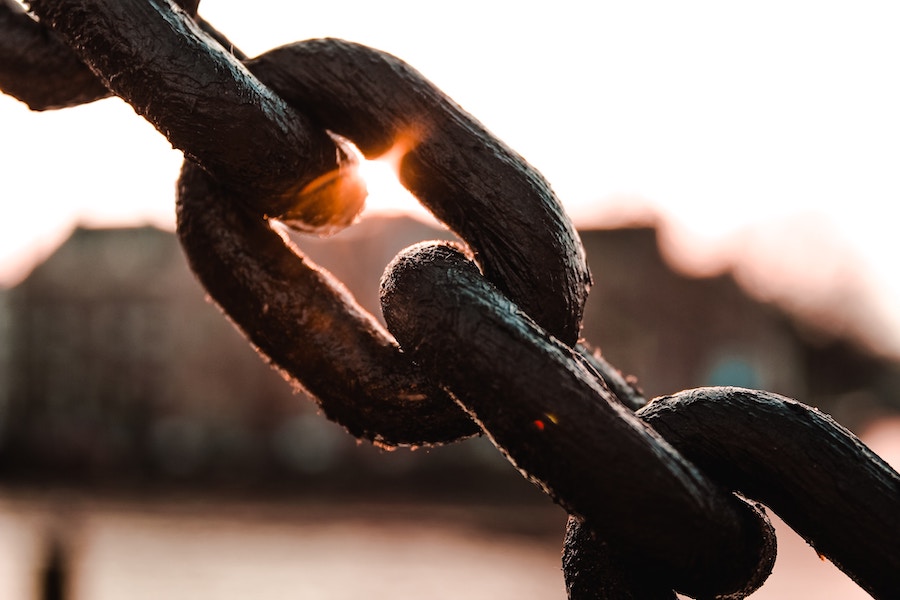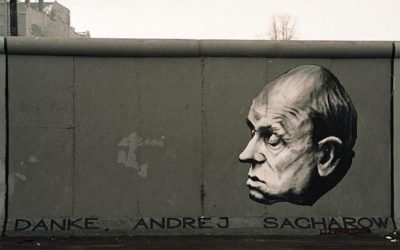The rights prescribed by the Russian Constitution and the Law on Education cannot be provided or protected within Russia.
Dmitry Dubrovsky
Photo: The law contains a large number of rights, none of which are actually ensured through enforcement. Photo by Miltiadis Fragkidis on Unsplash
The Bologna Process and Academic Freedom
The Bologna Process has always been associated not just with the unification of degrees, educational programs, and academic mobility, but also with the protection of academic freedom and the autonomy of universities.
The Bologna Declaration, adopted in 1999, refers to the Magna Charta Universitatum, the Charter of University Freedom signed in 1988 by the rectors of leading European universities. The charter states that freedom to teach and research is the main principle of university life.
Thus, withdrawal from the Bologna Process has seriously jeopardized the development and protection of academic freedom in Russia.
UNESCO Recommendation
The only international document that can still be referred to in Russia is the UNESCO Recommendation “On the status of workers in the higher education system.” The guidelines define academic freedom in the following way.
Academic freedom includes the right, “without constriction by prescribed doctrine […], to freedom of teaching and discussion, freedom in carrying out research and disseminating and publishing the results thereof, freedom to express freely their opinion about the institution or system in which they work, freedom from institutional censorship and freedom to participate in professional or representative academic bodies. All higher-education teaching personnel should have the right to fulfil their functions without discrimination of any kind and without fear of repression by the state or any other source.”
Thus, academic freedom is, according to the UNESCO definition, teachers’ freedom:
- to teach and learn;
- to freely criticize their institution or speak out on issues that fall within their sphere of professional interest; and
- to protect this freedom within the framework of representative academic bodies, primarily Academic Councils
Here, there is a clear connection between academic freedom and human rights. Moreover, academic freedom is associated both with fundamental rights (primarily the right to freedom of speech) and with socio-economic ones (for example, the right of access to education).
Protecting Academic Freedom in Europe
A recent study of the extent to which academic freedom is protected under European law divided types of legal protection into four categories:
- individual rights and freedoms
- institutional autonomy
- self-regulation and collegiality
- protection of labor laws
Each category was assigned a certain point value and the results ranked according to the total number of points received. As a result of this analysis, the authors found that EU member countries have an average score of 52.8%.
This score “demonstrates that the state of legal protection of the right to academic freedom in Europe is ‘unsatisfactory.’”
Academic Freedom Worldwide
The Global Mapping of Regulatory Frameworks project, materials from which were used in this piece, is intended to be a summary of excerpts from documents—primarily constitutions and documents on higher education—from every country in the world.
The project’s main objective is not only to compile a general list of legislation in countries around the world, including in federal countries where each subject has its own laws and constitution, but also to pull out specific quotations pertaining to academic freedom, freedom of creativity or science, and academic autonomy.
To date, the project has compiled materials from all 55 countries that were part of the Bologna process until 2022. (There are currently 53 countries, as the Russian Federation and the Republic of Belarus have been excluded.)
The materials pertaining to the Russian Federation allow us to make some observations regarding:
- How academic freedom is protected in
- the Constitution of the Russian Federation
- the constitutions of the federal subjects of the Russian Federation
- the legislation on education
- How academic freedom is interpreted by the Constitutional Court of the Russian Federation
We are also able to compare them to the model using the general categories of academic freedom embedded in the UNESCO definition cited above.
Academic Freedom in the Constitutional Law of the Russian Federation
Constitution of the Russian Federation. Article 44, para. 1, states that according to the Constitution, in Russia, “Everyone shall be guaranteed the freedom of literary, artistic, scientific, technical and other types of creative activity, and teaching.”
This wording is clearly a holdover from the Soviet Union. The 1977 USSR Constitution also protected not academic freedom, but the “freedom of technical, scientific and artistic creativity.” Obviously, this phrasing is broader than the term “academic freedom,” which is increasingly used in European law, in particular Art. 13 of the European Union Charter of Fundamental Rights.
Constitutions and charters of the subjects of the Russian Federation. Back in the early 2000s, Putin’s so-called “unification” of constitutions and constitutional acts in the federal subjects eliminated much of their former diversity. Despite this, the constitutions of 23 out of 83 federal subjects still mention “scientific creativity.”
We do not consider the annexed Crimea, Sevastopol, DPR, LPR, Kherson, and Zaporozhye regions to be subjects of the Russian Federation.
It is telling that 18 of these 23 are national republics that had full-fledged constitutions, in contrast to the territories and regions that had and continue to have charters.
After the 2000s, almost all republican Constitutions in this segment became essentially carbon copies of each other.
- 15 constitutions contain the article “Everyone is guaranteed freedom of literary, artistic, scientific, technical and other types of creativity and teaching.”
- In two other cases, “teaching” was omitted.
- In one case, the adjective “scientific” was omitted.
Among regional charters, only five happen to mention freedom of science and teaching. But this is likely the result of an oversight. It seems as if this text was left there by mistake.
Thus, in the Kemerovo Oblast Charter, there is a direct reference to the protection of “creative activity” and “protection of the rights and interests of creative workers.” The Kirov Oblast Charter also mentions “freedom of creativity.”
For their part, the Charters of the Orenburg and Tambov Oblasts explicitly recommend resorting to judicial protection if your creative activities are being infringed upon:
- Direct interference in creative activity, as well as other forms of restriction of freedom of creativity, are not permitted and are grounds for seeking judicial protection (Orenburg Oblast Charter).
In these regions, the formulation is related less to “freedom of creativity” and more to the protection of “creative workers,” among them scientists and employees of educational institutions.
However, it must be clarified that these provisions do not affect the real possibility of taking these violations of “creative freedom” to court.
Constitutional Court of the Russian Federation. Decisions of the Constitutional Court of the Russian Federation on issues related to the freedom to teach and study are limited to a discussion of university autonomy when choosing a rector, as well as the issue of expelling students for failing exams.
One important finding of the Constitutional Court is that although academic autonomy is not mentioned in the text of the Constitution, it “is the fundamental principle of the activities of universities and is one of the legal principles that determine state policy in the field of education and the relationship between the state and universities.”
Issues of academic freedom have not yet been addressed by the Constitutional Court.
The Law on Education. At present, the only document that directly articulates the idea of academic freedom for the Russian Federation is the Law on Education, adopted in 2012.
It contains an entire section—Article 47—devoted to the legal status of teaching staff. Paragraph 3 enumerates a long list of academic rights and freedoms, including
- freedom of teaching and expression
- freedom from interference in pedagogical activities
- the right to participate in the management of the organization
- the right to form trade unions
The same law separately discusses the safeguards protecting the labor rights of academic workers.
Law versus Enforcement
This law contains a large number of rights, none of which are actually protected by enforcement. For example, the long leave of absence provided for by this law after every ten years of work in an educational institution is almost impossible to obtain. Employers either state that such vacations are not provided for by local legislation, including university statutes, or simply point to budgetary restrictions.
This example illustrates well the main problem of Russian legislation around the protection of academic rights and freedoms. The rights prescribed in the Constitution or the Law on Education are simply impossible to implement or protect, primarily because there is no independent court and no real implementation of the norms and principles of academic freedom—or, for that matter, any other freedom—within the Russian Federation.
A Hint of Russia’s Hand in the ECtHR
Before the Russian Federation was expelled from the Council of Europe, there was hope to be found at the European Court of Human Rights (ECtHR). Although only a handful of cases on academic freedom have been taken up by the Court, two of these relate specifically to Russia. They clearly illustrate the gap between the legislation on academic freedom and the application of these principles in Russia.
Kharlamov v. Russia (2015). Vladimir Kharlamov, a PhD of physical and mathematical sciences and a full-time teacher in the Department of Physics at Oryol State Technical University, was fined for “slander.” He had publicly criticized the elections of the Academic Council of his university because, in his opinion, ordinary university teachers had been excluded from the election process. Thus, the Academic Council, according to Kharlamov, had ceased to be legitimate.
The ECtHR ruled that the fine violated Article 10 of the European Convention: the right to freedom of expression. Kharlamov’s testimony was confirmed by four witnesses and was generally based on facts that the Russian court ignored. As a result, his case was reviewed, the statement was considered a “personal opinion,” and the sentence was overturned.
Bychkov v. Russia (2019). A similar example can be found in the case of Yevgeniy Bychkov, a student of the Taganrog branch of the Russian New University (RosNOU).
A teacher about whom students had complained considered the complaints slanderous and took the students to court. Following several appeals, the court sided with the plaintiff and fined the complainants.
Yevgeniy Bychkov, one of the students, filed a lawsuit with the ECtHR. The Court found the events to be a violation of Article 10. In particular, the court found it erroneous to consider as slander this non-public address, which generally concerned controversial issues in the teacher’s attitude toward students and was not intended to humiliate him or undermine his public reputation.
* * *
These examples illustrate the main trend in Russian legal proceedings.
As a rule, the court sides with the employer on issues of labor rights and with the university administration in the event of appeals from students.
The formal guarantees of academic rights and freedoms set out in the Constitution and the Higher Education Law are not discussed by the Constitutional Court and are not protected by local courts.
Since Russia’s exclusion from the Council of Europe, the only protective mechanism that remains in place is the UN.





0 Comments